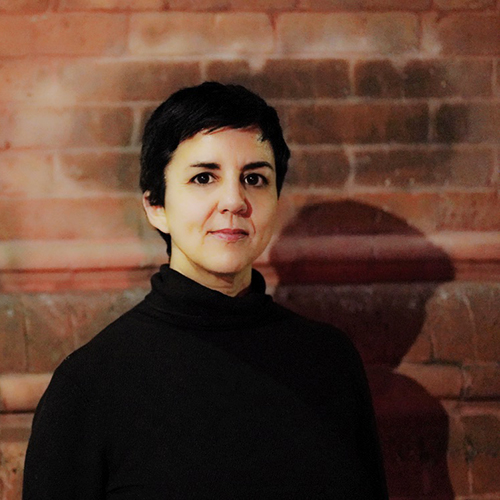Visiting Poets
Carmen Giménez Smith
The timely, searing poems of Carmen Giménez Smith insist on confronting America’s xenophobia and systemic racism. Describing Giménez Smith’s most recent collection, Be Recorder (Graywolf, 2019), the National Book Awards committee praised the ways in which her poetry “turns the increasingly pressing urge to cry out into a dream of rebellion—against compromise, against inertia, against self-delusion, and against the ways the media dream up our complacency in an America that depends on it.” Giménez Smith is the author of five additional collections of poetry, including Milk and Filth, which was a finalist for the 2013 National Book Critics Circle Award for Poetry, and celebrated by Publishers Weekly for the way that its images “challenge classist, consumerist, and socially polite forms of feminism." Giménez Smith teaches English at Virginia Tech. She also co-directs CantoMundo, serves as publisher of Noemi Press, and is poetry editor (alongside Stephanie Burt) for The Nation.
Select Poems
I’d once have left
brown behind
having already
left the tribe behind
and her tongue
and the garb that made me
theirs behind because it felt
like leaving hoi polloi behind
to finally put behind the chola
in my mother’s tongue
lingering in quiet deep vowels
behind meant I could leave
behind inferiority complex
not really but in theory
I tried to leave my eden-dreams
behind but they stuck to my shoe
because of my anarchic spirit
I leave behind dignity
so the angel inside me
stays behind me too
along with my poison pen
never mind I’ll need that
anger was my primary breathing
apparatus for so long
what a mixed blessing when it worked
I’ve learned the most from the cracked
once I broke into pieces
now I break into wholes
—excerpt of "Be Recorder"
I was light from the mouth from every part of me
I was of the earth or a scar in the earth rent through
the ruins of late civilization and bubbled from it and
became a saint’s reptilian spirit and I could taste
the wheat and coal and gold like a trinity of bounty
and I was vapor like a smog that becomes a wraith
over the city then back to its animal form decompressed
and atomized into its past life as star and I was that animal
truth the spirit I had dreamt about being more cloud
and star then given I was just the density of water
a reciprocity in and out the fade of my fugitive
substance going south and the yearn for decadence
disappears in the annals yet leaves a taste in the mouth
metallic and lime the sense of dissolution and I was speed
and insistence to reset the orb of gravity I was risen from foam
necessitated by colony sired in violence exported as luxury
—excerpt of "Be Recorder"
Isn’t there a line by Yusef Komunyakaa, “I apologize for the eyes in my head.” Maybe what I am trying to say is that I apologize for the sight in my eyes.
—Susan Briante
I would love to make a proposal, and it is out of love,
not patronizing love but true revolutionary love, and it won’t
upset the orbit tomorrow. So here’s where I’d like
to begin, and this might be the hardest thing you’ve tried to do,
or maybe you already do it and I’m grateful for you
because you’ve inspired me. I know it’s the hardest thing
for me because I haven’t done it consistently (not at all, sorry),
but I want to recommend that we stop apologizing.
Today I counted and I said I’m sorry approximately 22 times.
I apologized for my setting my stuff down on the counter at Kroger.
I apologized for being behind someone at a copy machine.
I apologized for someone else bumping into a stranger.
I apologized for taking longer than a minute to explain an idea.
Suffice it to say I am sorry all the time.
I won’t tell you what to do because that makes me
an implicit solicitor of sorry. Personally,
when the word comes into my mouth, I’m going to shape it into
a seed to plant in another woman’s aura as love. I only ask
that we get started. This is our first step toward world domination.

